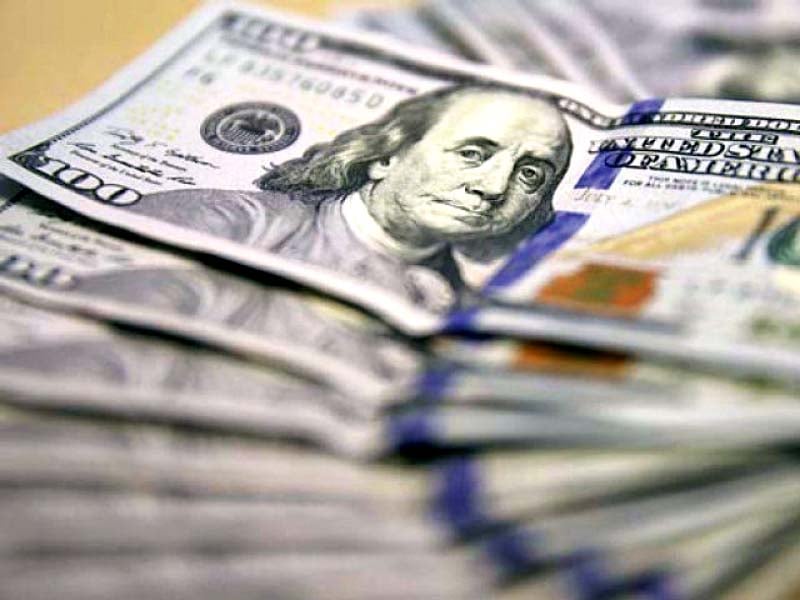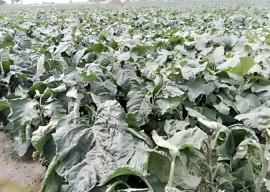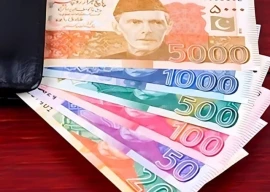
The Asian Development Bank (ADB) on Wednesday approved a new five-year indicative lending programme of $10 billion aimed at supporting Pakistan’s efforts to deal with economic and social challenges thrown up by the pandemic and persistent structural weaknesses.
The Manila-based lender will provide these loans from 2021 through 2025, including the $6.3 billion that it plans to approve in the next three years. However, the actual approval and disbursement of these loans will depend on Pakistan’s ability to meet conditions and timely process loan documents. About one-fourth of the total loans will be concessionary at around 2% interest rate and remaining loans will cost Islamabad the London Interbank Offered Rate (Libor) plus 0.5%.
Out of the $6.3 billion that is planned to be disbursed in the next three years, about $4.6 billion is relatively expensive Libor-linked loan.
Due to resource constraints, Pakistan has been heavily dependent on foreign lenders to meet its budget financing, foreign exchange reserves and external financing needs. The World Bank is also in the process of approving a new five-year strategy, having an indicative size of $12 billion.
A majority of the policy-based loans will be linked with Pakistan’s ability to fulfill conditions that the ADB believes will lead to macroeconomic stabilisation, ensure domestic resource mobilisation and governance and energy sector reforms.
However, the track record of achieving these intended objectives remains poor due to a lack of political ownership of these reforms and the Ministry of Finance’s interest in securing loans than focusing on areas that serve as bottlenecks to sustainable economic growth.
“The government has expressed its strong commitment to the ongoing International Monetary Fund (IMF) Extended Fund Facility programme,” said ADB Country Director for Pakistan Xiaohong Yang. She added that the new strategy placed a strong focus on combining reforms with physical and social investments to improve sustainability and generate lasting development impact.
The new Country Partnership Strategy (CPS) 2021-25 will help restore economic stability and growth in Pakistan, enhance people’s wellbeing, create jobs and expand economic opportunities as the country works to overcome the coronavirus (Covid-19) pandemic, according to a press release issued by the ADB.
The ADB stated that the pandemic had interrupted macroeconomic recovery in Pakistan, resulting in a sharp contraction in growth, rise in public expenditures, and loosening of monetary policy to mitigate the health and economic impacts.
“As with many countries in the region, Covid-19 has affected Pakistan, revealing the extent to which the population is exposed to economic and social vulnerabilities,” said ADB Director General for Central and West Asia Eugene Zhukov.
He said that the new CPS 2021-25 would build greater resilience of the population and help tackle Pakistan’s persistent structural challenges.
Documents showed that out of the $6.3 billion indicative lending, about $1.5 billion would be for budget financing over the next three years. Project lending is estimated at 57% of the proposed three-year pipeline.
The federal government continues to be the largest recipient of ADB assistance, followed by Punjab and Khyber-Pakhtunkhwa (K-P). The ADB plans to give 19 loans worth $4 billion to the federal government, 11 worth $1.3 billion to the Punjab government, nine worth $569 million to the K-P government and five valuing at $525 million to the Sindh government over the next three years.
The energy sector will account for a 29% share followed by the transport sector. The social sector will get over 10% of the total financing envelope.
In 2021, the ADB may approve $2.4 billion, followed by $1.5 billion in 2022 and $2.5 billion in 2023.
The ADB said that its loans over the next five years would prioritise support for three interlinked pillars - improving economic management, building resilience through human capital development and social protection, and boosting competitiveness and private sector development.
It said that the ADB would continue to help improve the energy sector through reforms and sovereign and non-sovereign investments.
Under the CPS, ADB will expand investments and help accelerate reforms in secondary education and technical and vocational education and training. ADB will also address the challenge of out-of-school children and target children from poor and vulnerable households.
However, in the past ADB’s lending in these areas did not help in improving the situation.
The ADB will play a pivotal role in supporting Pakistan to attract private sector investment in renewable energy, small and medium-sized enterprises, trade, and supply chain finance.
Women in Pakistan are less economically active and underrepresented in skilled jobs. ADB will continue to promote women’s economic empowerment and enhance women’s resilience to external shocks. The bank aims to increase women’s access to financial services, raise women’s skills and education levels, and bolster social protection under the Ehsaas Kafalat program.
ADB will continue to boost Pakistan’s resilience to climate change and strengthen adaptation and disaster risk management, according to the handout.
Published in The Express Tribune, January 28th, 2021.
Like Business on Facebook, follow @TribuneBiz on Twitter to stay informed and join in the conversation.





1729137363-0/Liam-Payne-fans-(1)1729137363-0-165x106.webp)












COMMENTS
Comments are moderated and generally will be posted if they are on-topic and not abusive.
For more information, please see our Comments FAQ